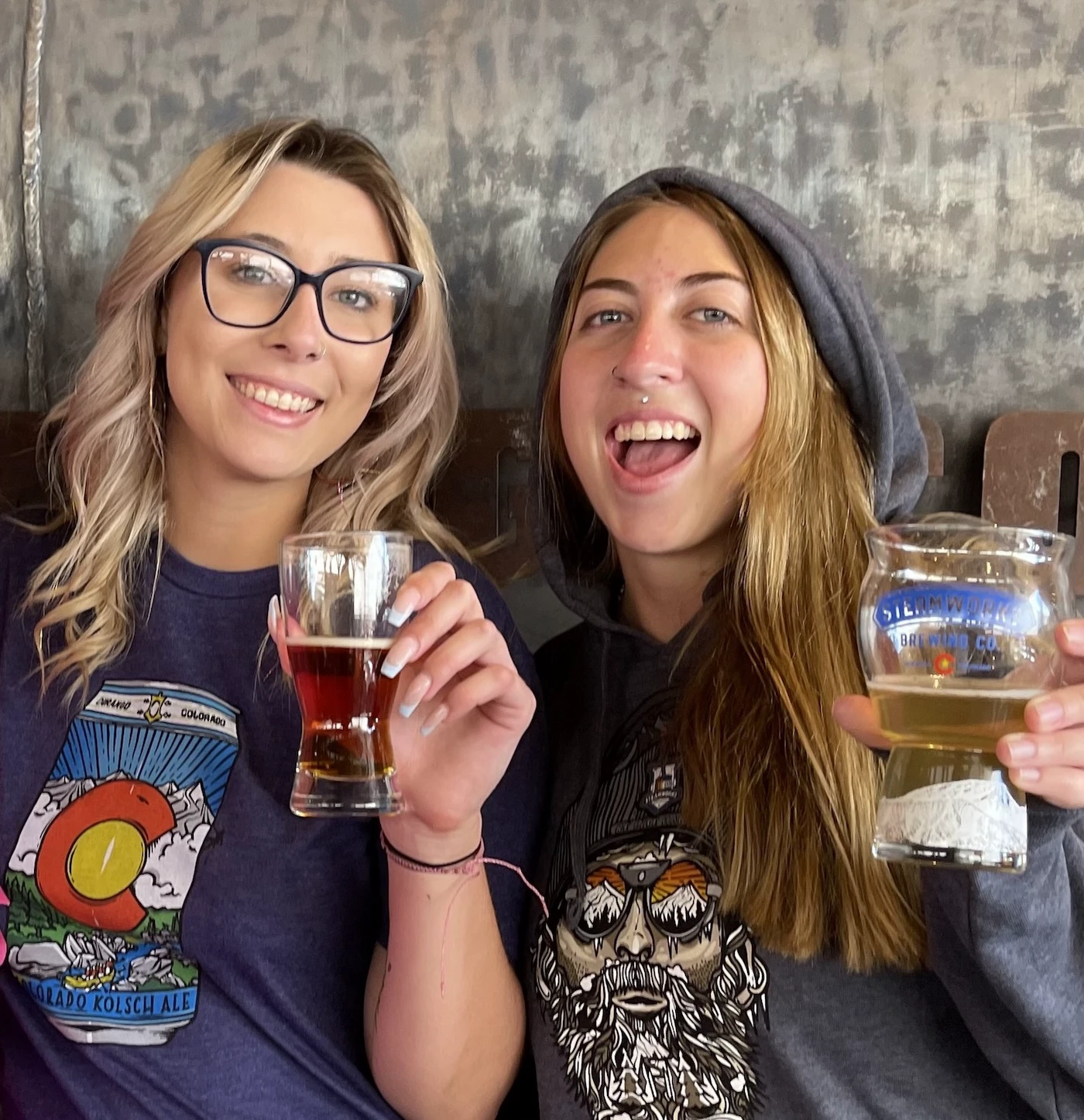
Compañía cervecera Steamworks
Por: Jennalie Burroughs
Al entrar en Steamworks Brewing Co. en Durango, Colorado, percibirás enseguida algo especial más allá de las deliciosas cervezas artesanales y el vibrante patio. Notarás que el personal irradia un genuino orgullo por su trabajo, y su servicio cálido y constante te hará sentir como en casa. También notarás que tanto el personal de la barra como el de la cocina sienten una auténtica pasión por su trabajo, y que todos se sienten realmente comprometidos con su trabajo, y eso se debe a que muchos de ellos lo están.
Peak Food & Beverage, empresa matriz de Steamworks, El Moro Spirits & Tavern y HomeSlice, es propiedad de sus empleados (40%). Más de 45 empleados, desde bármanes y cocineros hasta gerentes y cerveceros, son actualmente propietarios del negocio.
Para el cofundador y director ejecutivo, Kris Oyler, ese cambio ha sido intencional. "Hemos reducido drásticamente la rotación de personal, y eso se refleja en los resultados y en nuestra rentabilidad. La gente simplemente se preocupa. Se juegan el pellejo, observan atentamente, se lo toman en serio, no solo fichan al entrar y al salir. Marca una gran diferencia en su actitud y rendimiento", afirma.
En la actualidad, Peak posee cinco restaurantes, emplea hasta 275 personas durante los agitados meses de verano y genera seis veces más ingresos que cuando se fundó en 1996. Oyler dice que nunca imaginó que Steamworks se convertiría en un pilar de la comunidad de Durango.
Hacer que la propiedad sea accesible
Oyler no siempre fue propietario de una gran parte de la empresa. En sus inicios, era gerente y recibía una participación del 31% en las ganancias. Ese modelo inicial sentó las bases para la evolución de la estructura accionaria de Peak con el tiempo.
La propiedad de la empresa se divide en 1500 acciones (más comúnmente conocidas como "acciones"). Los empleados pueden adquirir acciones (valoradas actualmente en aproximadamente $6500 cada una), financiadas por la empresa y amortizadas en cinco años con un interés de 5% mediante deducciones semanales de la nómina. En cuanto comienzan los pagos, los empleados reciben plenos derechos de propiedad y distribuciones de beneficios. La empresa financia estas adquisiciones con su propio flujo de caja, lo que significa que los empleados no necesitan solicitar préstamos, y Peak no depende de capital externo para respaldar el plan de propiedad.
Una apuesta al futuro
En una industria conocida por su alta rotación de personal, la participación de los empleados en Peak ha tenido un impacto notable en la cultura y la retención. El personal permanece más tiempo, y algunos que se incorporaron hace casi dos décadas ahora son empleados propietarios a largo plazo.
Llevo 17 años trabajando en esto, compré en el segundo año y ahora estoy viendo un valor enorme. Sin esto, no tendría algunas de las oportunidades que tengo ahora. Antes, nunca ganaba más de $20k al año y vivía en una tienda de campaña. La situación siguió creciendo como una bola de nieve, invertí en quienes invirtieron en mí y ahora ya no vivo en una tienda de campaña", comentó un empleado-propietario.
Para otros, ser propietario es como una herramienta de ahorro integrada. "Es como una cuenta de ahorros independiente que puedes retirar si surge algún imprevisto", explicó otro empleado-propietario. Algunos también lo ven como una forma de planificar con antelación, aunque lleve tiempo comprender todos los beneficios.
El valor de las acciones se ha revalorizado significativamente desde 2022, y los empleados pueden vender o transferir acciones según sea necesario. Algunos han utilizado las ganancias para grandes compras, mientras que otros las consideran un ahorro a largo plazo. Incluso existe un mercado de reventa estable dentro de la red de la empresa.
Una cultura de transparencia
Peak opera con un alto nivel de transparencia. Las finanzas se comparten regularmente en reuniones que incluyen tanto a propietarios como a no propietarios, y se aceptan ideas de todo el equipo. "No hay que creer que todos toman todas las decisiones", afirma un gerente. "Pero cuando las personas comprenden lo que está sucediendo, se involucran más. Quieren ayudar a resolver los problemas".
Ese sentido de inclusión facilita el flujo de ideas y crea una responsabilidad compartida. Ya sea buscando maneras de reducir el desperdicio o ajustando precios, los empleados tienen una visión real y, a menudo, buenas ideas.
Las reuniones periódicas reúnen al personal para revisar los estados de resultados, generar ideas y debatir ideas. Al compartir información financiera y fomentar la confianza, Peak garantiza que más personas comprendan el funcionamiento de la empresa y se sientan empoderadas para contribuir a su crecimiento. Además, dado que estas reuniones de gestión incluyen tanto a propietarios como a no propietarios, crean un espacio compartido donde todos pueden aprender a gestionar una empresa y resolver problemas.
Planificación para el futuro
La participación de los empleados en la propiedad también es un plan de sucesión. Para Oyler, es una forma de dar un paso atrás con el tiempo sin tener que vender a un comprador externo que podría cambiar el negocio por completo. "He visto empresas vendidas y la cultura desaparece", afirma. "De esta manera, quienes construyeron la empresa son quienes la mantienen en el futuro".
Ha habido desafíos, como decidir qué hacer cuando un propietario deja la empresa, pero Oyler afirma que los beneficios superan con creces las complicaciones. En definitiva, cree que la participación de los empleados en la empresa es una de las razones por las que Steamworks sigue creciendo casi 30 años después de su fundación.
Para él, se trata de preservar el legado, no solo del negocio, sino también de las personas que lo respaldan. La participación de los empleados en la empresa permite a Steamworks mantenerse arraigada en sus valores y su comunidad. Y para otros empresarios que piensan en el futuro, ofrece un poderoso recordatorio: la sucesión no tiene por qué significar dejar ir. Puede significar entregar las riendas a quienes ayudaron a construirla y darles una verdadera participación en el futuro.
